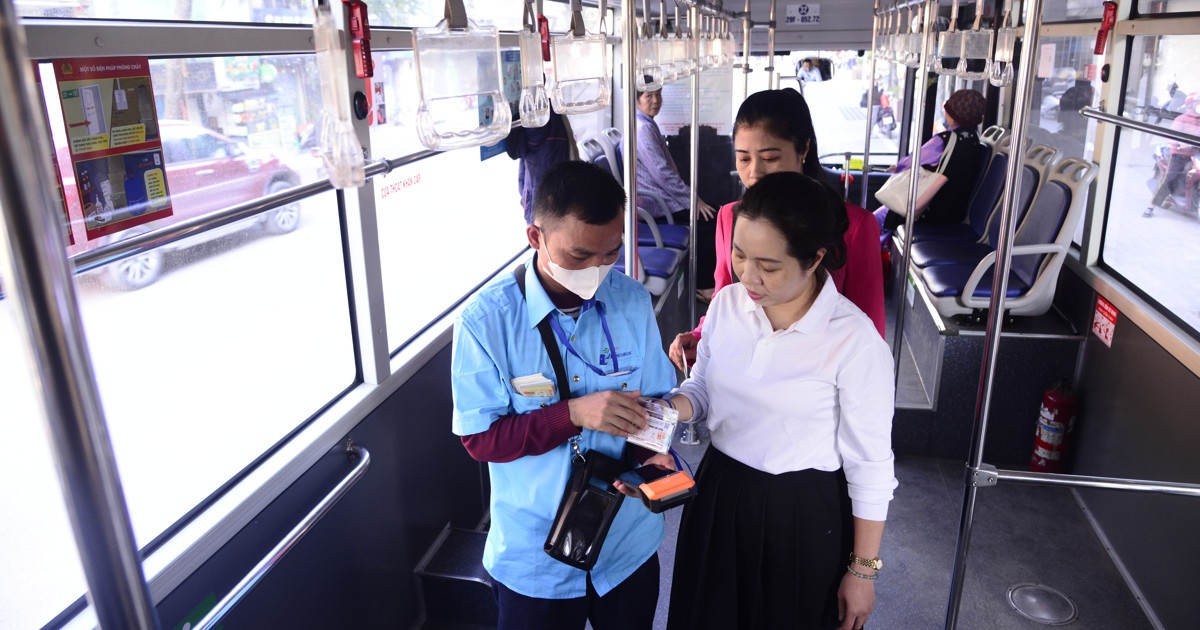
Parking service
According to the Hanoi People’s Committee, units allowed to provide vehicle keeping service mostly collect fees in cash. In 2021-2023, VND248 billion were collected from 101 parking places in Hanoi.
To keep the vehicle keeping service transparent and increase budget collection, agencies in Hanoi are going to launch an app allowing non-cash payment for the service.
In February 2024, implementing Project 06 on national digital transformation, the Tay Ho Police Station began piloting non-cash fee collection at some vehicle keeping places in Tay Ho and Tran Quoc Pagoda area. About 50 percent of motorbike drivers and 70 car drivers made cashless payments for the service.
Nguyen Danh Thu, chair of Quang An ward in Tay Ho district, said the piloted cashless fee collection aimed at satisfying digital transformation demand in the locality. This helps examine and supervise the compliance of regulations on vehicle keeping services.
To deploy the cashless payment plan, the Hanoi People’s Committee has assigned the departments of Transport and Finance, and taxation agencies to create policies on collecting fees and taxes from parking places used for commercial purpose.
Since April 15, non-cash payment has been applied at 16 parking places in Hoan Kiem district. The municipal authorities will review the implementation of the pilot program before applying the model in all districts in Hanoi.
According to the Hoan Kiem district People’s Committee, about 80 percent of car drivers and 60 percent of motorbike drivers make cashless payments.
“Both people and businesses have shown support to the new cashless payment method,” an official said. “Every dong paid by people for parking service is clearly shown in taxation bodies’ database. The new payment method helps avoid loss of revenue.”
On March 14, at a working session with Hanoi, Nguyen Duy Ngoc, Deputy Minister of Public Security, and deputy head of the working group in charge of Project 06 implementation, said non-cash fee collection can also help ease traffic jams and prevent institutional crimes.
Ngoc stressed that it is necessary to differentiate ‘parking lot’ from ‘roadbed’. Only capable units or individuals can be assigned to develop the parking lots.
A report from the Hanoi People’s Committee showed that there are 57 parking lots at shopping centers, apartment quarters, hospitals and schools, and 639 parking lots on roadbed with a total area of 135,000 sq m.
Swiping cards to take bus trips
The current bus network in Hanoi now has 150 routes and branches with more than 2,000 vehicles. In 2023, Hanoi spent VND2.75 trillion to subsidize the bus system. Experts believe that once paper tickets no longer exist and passengers pay for tickets in cash, the bus network can cut thousands of workers. If so, the state will no longer bear the burden of providing a subsidy.
According to La Van Cham, director of the Transport University Consultancy and Construction Company, bus tickets are an out of date model which cannot use machines and high technologies. As Hanoi still needs workers to sell and control bus tickets, the cost to operate the bus network is high.
“As long as paper bus tickets are applied, the stocktaking of transport output, revenue management and ticket issuance service still have to be done in a traditional way. With the model, it is impossible to use advanced management technology and run a common system for the entire public transport network,” Cham said.
Therefore, the Hanoi Transport Department has launched a trial electronic ticket system for the entire bus network, including 24 bus routes. Passengers can register, buy and pay for tickets online (via website, mobile app), or offline, at ticket boxes. The network accepts non-cash payment modes, including bank cards, e-wallets and QR Code.
After the trial period finishes, the department and relevant units will review the electronic ticket mechanism to find an optional solution for the bus ticket network in the city.
The department believes electronic tickets will help solve a lot of problems, especially in staffing. A high number of workers can be cut, which will allow the city to save hundreds of billion of dong each year.
There are 130 subsidized bus tickets with 2,000 buses and 4,000 workers in Hanoi.
Quang Phong